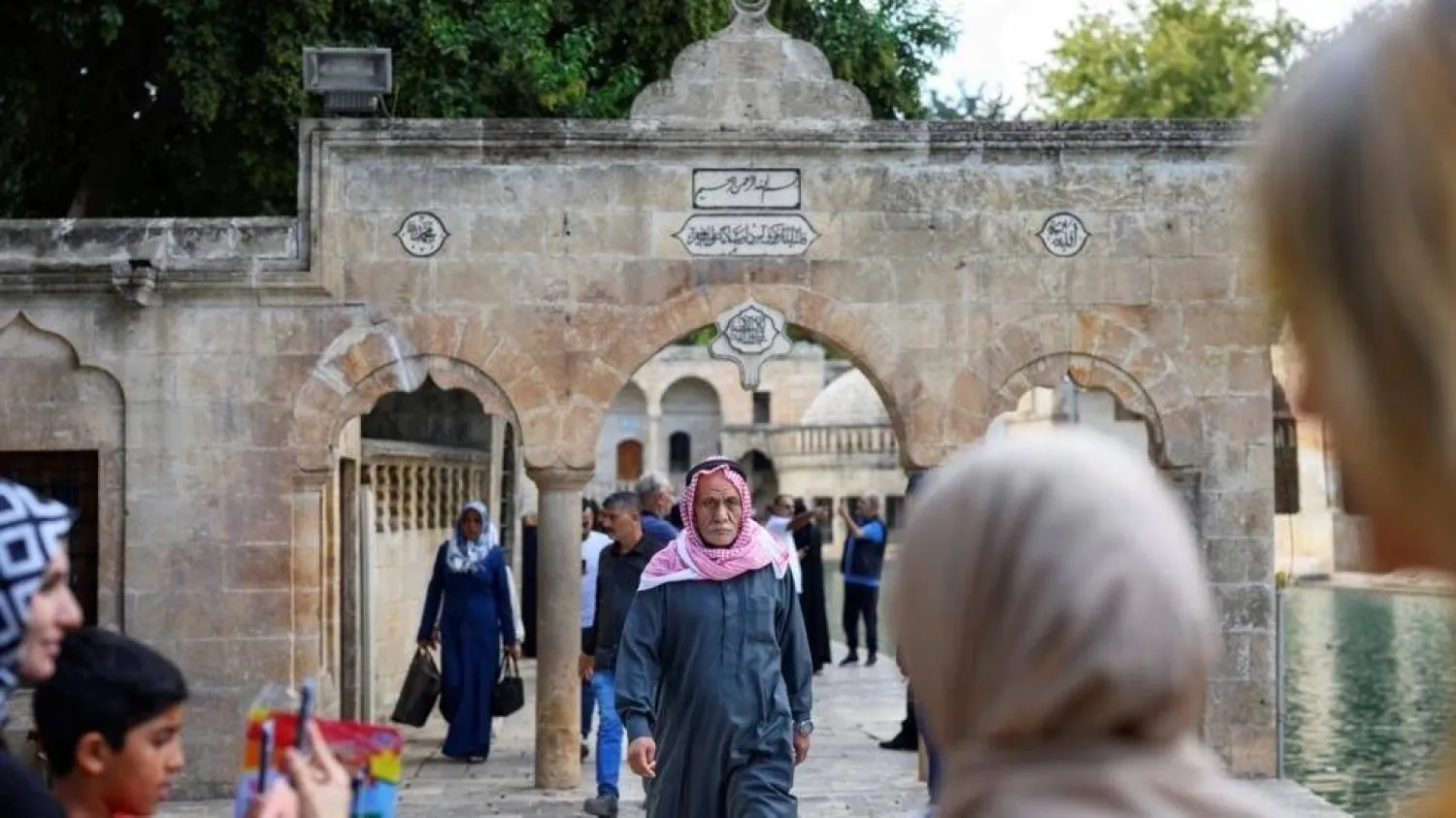Like millions of other Syrians fleeing war, Mahmud Abdi came to Türkiye hoping to return once the bloodshed ebbed.
Almost a decade later, the 30-year-old carpenter is looking to open his own workshop in the southeastern Turkish city of Sanliurfa, where a quarter of the two million inhabitants are Syrian, said AFP.
"I've learned to handle new machines," said Abdi, who fled ISIS's short-lived "caliphate" in Syria's Raqqa. "After my course, I'm going to work for a furniture maker."
Abdi's new ambitions pose a political problem for Türkiye, which still views most of its nearly 3.5 million Syrians as "guests" receiving "temporary protection".
Syrian refugees became a hot-button issue during this year's presidential election, held amid an economic crisis that fanned anti-migrant flames.
But with the European Union's help, Türkiye is quietly setting up integration-through-work programs -- even if few officials publicly admit that many Syrians are probably here to stay.
"Employment plays a key role in ensuring harmony" between locals and the Syrians, said Metin Baydilli, mayor of Sanliurfa's Karakopru district.
That harmony was violently broken in the capital Ankara in 2021, when Turkish nationalists went on a rampage, attacking Syrian businesses and homes following the death of a teen in a street fight involving Syrians.
Other, less violent incidents have become painfully common in recent years.
Against this backdrop, the EU stepped up financial support, hoping Türkiye can continue accepting refugees who might otherwise end up in Europe.
The sides signed a landmark deal in 2016, with Brussels releasing nearly 10 billion euros since 2011 for schools, healthcare, and training programs such as Abdi's furniture-making course.
Political problem
"The word 'integration' is not used by Turkish officials," Nikolaus Meyer-Landrut, the European Union's ambassador to Türkiye, said during a visit to Sanliurfa last month. "But in reality, a lot is being done for integration, even if the prospects of a return are being kept alive for political reasons."
President Recep Tayyip Erdogan prided himself on Türkiye becoming the welcoming home for millions fleeing hardship in places such as Syria.
But polls show the overwhelming majority of Turks prefer to see the Syrians go back.
Heading into last May's vote, Erdogan announced plans to build hundreds of thousands of housing units for Türkiye’s migrants in areas of northern Syria under Ankara's indirect control.
With the 27-nation EU divided over how to handle refugees and migrants, Türkiye’s continued willingness to house Syrians in return for financial support is particularly important for Brussels.
"It's going better than you might think" though integrating "such a large number of people into a struggling economy is bound to be difficult," the EU's Meyer-Landrut said.
Sanliurfa's agricultural-based economy is struggling to cope with the new arrivals. The local unemployment rate is 15 percent, well above the official national average of 9.2 percent.
The situation is quite different in neighboring industrial Gaziantep, where Syrians have become the driving force behind the labor-starved textile sector.
Dividing lines
"To offer employment to Syrian refugees, we need to increase investment in Sanliurfa," said Yunus Colak, who heads the local development agency. Integration is hampered by the legal status of the refugees.
Only 17,557 Syrians have registered jobs in Sanliurfa, according to officials. The rest are employed illegally and often poorly paid, undercutting the local labor market.
A 2021 report by Economic Policy Research Foundation showed 48 percent of Türkiye’s Syrians working illegally, and 41 percent being underpaid.
The picture looks brighter in Türkiye’s public schools, which now teach 800,000 Syrian children.
Bunyamin Abdullah, 11, is learning Turkish in a specialized class supported by EU funding.
"My mother doesn't speak Turkish. I help her when she goes shopping," he says.
The additional classes opened with European support are soothing the anger of parents who blame Syrian children for overcrowded schools.
But in the streets of Sanliurfa, invisible dividing lines run between the Syrians and the city's Turkish, Kurdish and Arab inhabitants.
"There are neighborhoods nicknamed Raqqa or Damascus. In my grandson's school, out of 27 pupils, only three are Turkish, the rest are Syrians," said car salesman Mustafa Aslan.
"Their culture is very different from ours. We don't want them here," he said.









